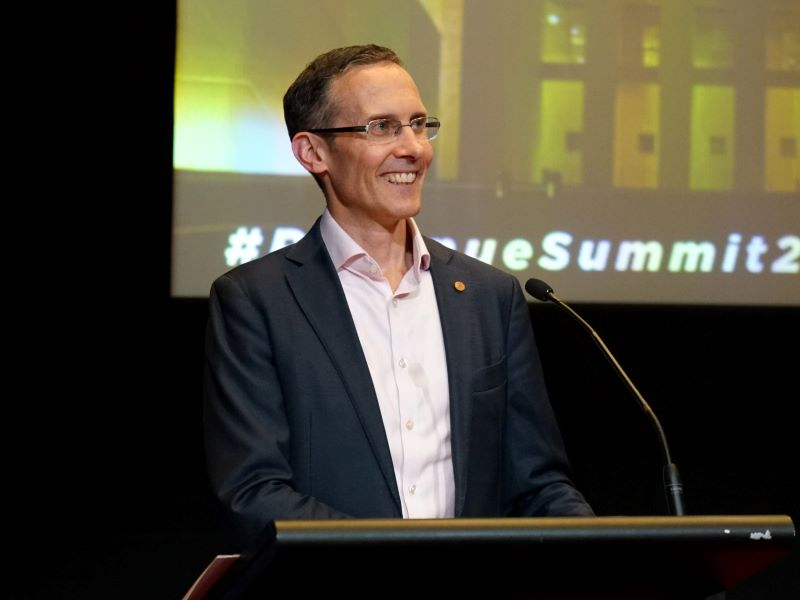Artificial intelligence is a “different kind” of technology challenge for government, according to assistant minister for competition Dr Andrew Leigh, who will lead a new competition reform push that addresses the technology.
On Wednesday, Dr Leigh said AI held great potential, particularly in service heavy economies like Australia, but poses key challenges to competition and its rapid adoption “places pressure” on government to respond.
Dr Leigh called out the already concentrated supply chains for the chips powering AI, the use of private data, potential network effects that have already helped Big Tech companies to dominate, “immobile workers” trapped by non-compete clauses, and the ‘open first, closed later’ model allegedly used by Facebook to attract developers before later changing terms, as potential competition issues.

“In other industries, competition has arisen because key staff left to start a competing company, or because it made sense for another firm to operate in a different geographic area, or because consumers desired a variant on the initial product,” Dr Leigh said in an address to the McKell Institute.
“But if AI is learning from itself, if it is global, and if it is general, then these features may not arise. In that scenario, consolidation may be more likely than competition.”
Dr Leigh has tasked the recently established competition taskforce to consider the competition issues being raised by AI as it is rapidly adopted across the world through user-friendly applications like ChatGPT.
The taskforce, which is being assisted by former competition watchdog Rod Sims and new Productivity Commission chair Danielle Wood, is “applying a forensic energy to the process of competition reform” and is providing iterative advice on competition reform to government over two years. It is unlikely to get it completely right, Dr Leigh said.
“With a technology that is moving this fast, it’s unlikely we’ll find a solution that is perfect the first time,” he said.
“But with AI having huge potential to transform our society and economy, it’s critical to be considering its competitive aspects. Only by doing so will we ensure that Australia reaps the greatest social and economic benefits of AI.”
Industry minister Ed Husic is also finalising wider industry regulation of AI in Australia, with ethics and responsible use expected to be a focus after calls for dedicated AI regulators. States are also grappling with the impacts of AI and how it is affecting specific sectors like education.
On Tuesday, the UK competition regulator warned a positive outcome from AI can’t be taken for granted and the technology posses real risks of power and access being controlled by a small number of companies.
Dr Leigh, who has built a case for wide competition reforms over the last year, said AI needs top be tackled by regulators and reformers.
“Just as competition laws needed to be updated to deal with the misbehaviour of the oil titans and rail barons of nineteenth century America, so too we may need to make changes in Australian laws to address the challenges that AI poses,” he said.
While transformative general purpose technologies like electricity have brought similar fundamental changes to competition, AI is “a different kind”, Dr Leigh said.
“Because it uses normal language, AI comes purpose built for people to use it in all kinds of different contexts… AI’s ease of use is significantly increasing take-up, and in turn placing pressure on governments in terms of how we think about AI in many different contexts, from children doing homework to doctors keeping patient notes.
“If AI is effectively a new factor of production, then we need to think about the extent to which it is amenable to competition.”
Do you know more? Contact James Riley via Email.

